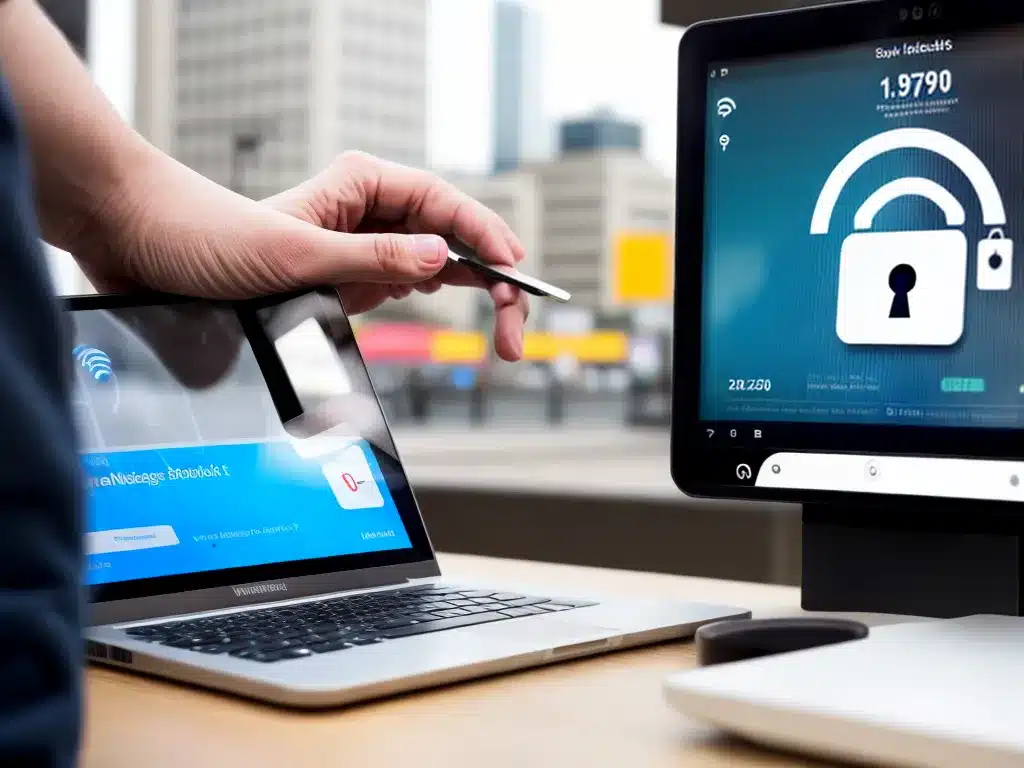
Is Public Wi-Fi Safe? Securing Your Data On Public Networks
Connecting to public Wi-Fi networks at coffee shops, airports, hotels, and other public places is convenient but poses potential risks. As a security-conscious internet user, I aim to understand the risks and best practices for securing my data on public Wi-Fi.
What Dangers Exist on Public Wi-Fi?
Using public Wi-Fi exposes my devices and data to several potential threats:
- Eavesdropping – Hackers can easily monitor unencrypted Wi-Fi traffic and steal usernames, passwords, and other sensitive information.
- Man-in-the-Middle (MITM) attacks – Hackers can position themselves between my device and the Wi-Fi router to intercept my data and communications.
- Evil twin access points – Hackers can create fake Wi-Fi access points with similar names to legitimate networks to trick users into connecting.
- Wi-Fi sniffing – Packet sniffing tools allow hackers to passively monitor Wi-Fi traffic of other network users.
- Malware – Connecting to public networks may expose devices to malware or viruses designed to steal data.
While convenient, using public Wi-Fi poses significant security and privacy risks that require caution on my part as a user.
How Can I Secure My Data on Public Wi-Fi?
To mitigate the risks of using public Wi-Fi, I take the following precautions to secure my data:
- Use a virtual private network (VPN) – A VPN encrypts my internet traffic and hides my IP address and location, preventing eavesdropping and MITM attacks.
- Avoid sensitive activities – I avoid online banking, shopping, and accessing sensitive accounts on public networks.
- Use HTTPS connections – I ensure sites I visit use HTTPS encryption for secure communication.
- Disable file sharing – I turn off file sharing and printer sharing options on my devices when on public networks.
- Use firewalls and anti-virus software – Firewalls and security software provide added protection against malware and attacks.
- Turn off auto-connect – I disable auto-connect for public Wi-Fi networks so my device won’t connect without my permission.
- Update devices – I keep devices updated with the latest operating systems and security patches.
Best Practices for Public Wi-Fi Use
Beyond technical precautions, I aim to use good judgment when using public Wi-Fi:
- I avoid accessing sensitive accounts or data unless absolutely necessary.
- I verify the name of the Wi-Fi network before connecting to avoid evil twin access points.
- I don’t leave devices unattended connected to public networks.
- If I must access sensitive data, I use my cellular data connection instead of public Wi-Fi.
- I power down or disconnect devices when not in use on public networks.
- I refrain from downloading software or files from unknown sources over public Wi-Fi.
While public Wi-Fi offers convenience, I understand the risks. By taking proper technical and behavioral precautions, I can securely use public networks while protecting my personal data and privacy. Remaining vigilant and using good judgment goes a long way in public Wi-Fi safety.












